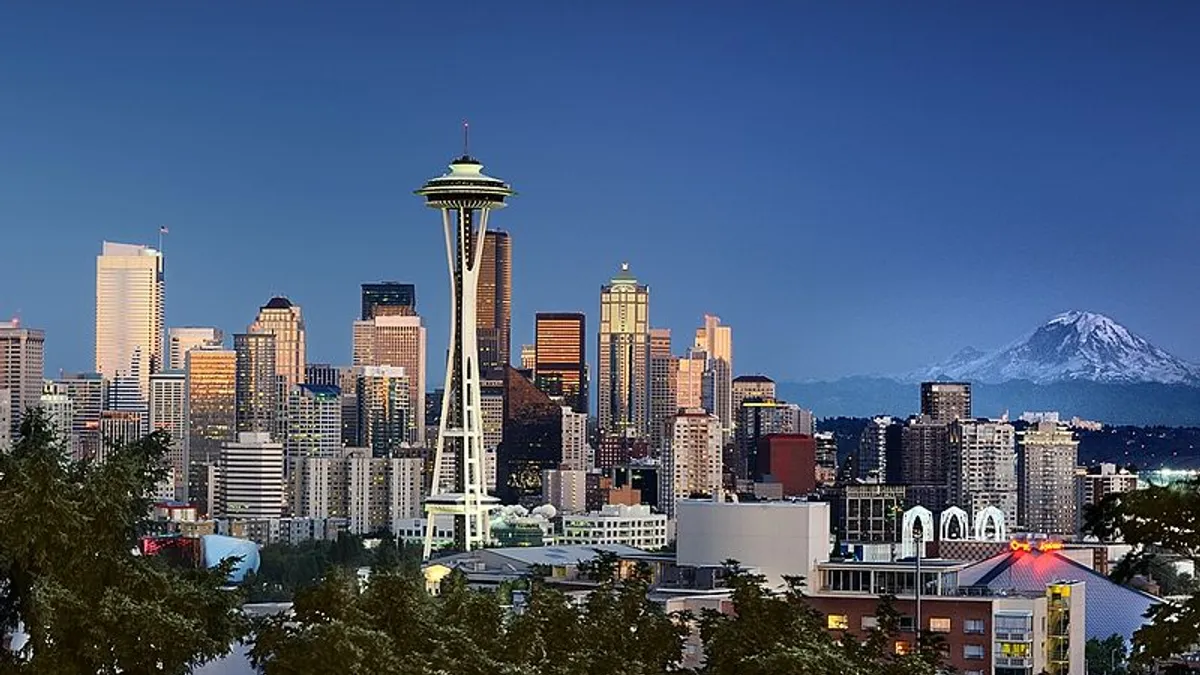UPDATE, June 13, 2018: Just four weeks after the Seattle City Council voted unanimously to approve a head tax on companies that gross at least $20 million a year, the council repealed the decision in a 7-2 vote, according to Reuters and others.
The decision to repeal the head tax came as the council faced significant opposition from businesses and voters, much of which was driven by the "No Tax on Jobs" coalition. Reuters reports that a campaign to place a referendum on the ballot in November to repeal the tax had already received 46,000 signatures — 28,000 more than what was needed by June 15.
Amazon — a company that has spurred incredible economic growth in the area, which is said to be the cause of increased rent prices and increased homelessness — was long at the center of the head tax debate. Amazon Vice President Drew Herdener called the vote "the right decision for the region’s economic prosperity" in a statement.
It remains to be seen if a similar tax will be reintroduced in the future, and how other cities will address similar issues of business-blamed homelessness.
Dive Brief:
- A coalition of employers dubbed "No Tax on Jobs" launched a campaign to oppose the recently approved head tax in Seattle. The tax imposes a $275-per-employee tax on companies that gross at least $20 million a year.
- The coalition, which filed a committee registration statement with the Seattle Ethics and Elections Commission on Friday, seeks a referendum on the ballot in November to repeal the tax. Nearly 18,000 verified signatures are needed by June 15 for the referendum to proceed.
- At least 585 companies would face the tax, according to The Seattle Times, which would generate up to $50 million each year to fund low-income housing and homelessness services.
Dive Insight:
While the approved head tax is a scaled-back version of the original proposal, which would have imposed a tax of $500 per employee, many employees in Seattle still worry the tax will threaten the city's job market. Opponents of the tax also consider it an ineffective way of dealing with the city's homeless crisis, which has plagued Seattle's streets for decades and has significantly grown as companies like Amazon expanded in the area.
Some argue Amazon and comparable local tech giants should be responsible for funding solutions to the homeless problem, as their businesses have been attributed to increased real estate prices. Two University of Washington professors explored this debate in a recent opinion piece in which they questioned the level at which Amazon should utilize its corporate social responsibility (CSR) to address homelessness. Amazon, however, has made it clear it is disappointed in the approval of the tax, noting that the city has a "spending efficacy problem."
"We are highly uncertain whether the city council’s anti-business positions or its spending inefficiency will change for the better," said Amazon Vice President Drew Herdener in a statement. The company has yet to pull the plug on a high-profile skyscraper project currently under construction in the city.
While the fate of the tax remains to be seen, some officials within cities that are shortlisted for Amazon's HQ2 are already taking sides on the tax debate by supporting the measure — which could be a risky move, considering the company is still deliberating where it may land.
"If Amazon were serious about its support for strong affordable housing solutions, it would fully back this tax proposal and chip in to help address Seattle’s homelessness crisis. By threatening Seattle over this tax, Amazon is sending a message to all of our cities: we play by our own rules," reads the letter signed by more than 50 U.S. councilmembers and city leaders — including representatives from Chicago, Dallas, Denver, Miami, New York, Austin, TX, who are all vying for the coveted HQ2.












